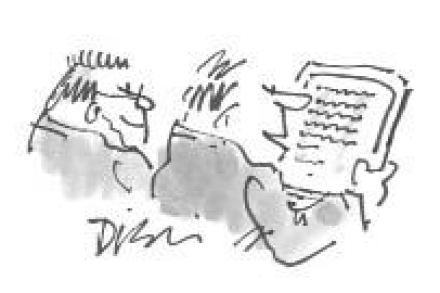Bookends: Laughing by the book
Comedy is a serious business. The number of young people who seek to make a living making other people laugh seems to grow every year. Jonathan Lynn starts Comedy Rules (Faber & Faber, £14.99) by insisting that it is not a primer for would-be writers, but of course it is, and much more. Lynn was at Cambridge with the Pythons and the Goodies, co-wrote the Doctor series in the 1970s and Yes, Minister in the 1980s, and has since carved out a career directing comedy films in Hollywood, some of them funnier than others. But as Rule 138 (of 150) states, ‘Nobody knows how the audience will react to any








